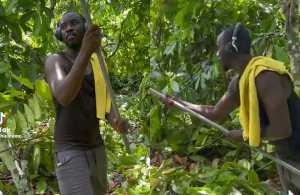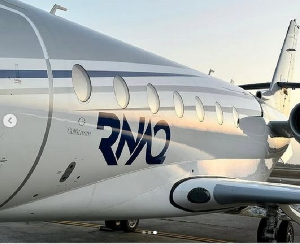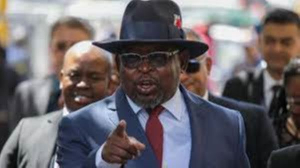By Reynt-Jan Sloet van Oldruitenborgh
ACCRA, Dec 21 (Reuters) - Ghana's cedi has lost around a third of its value against the dollar this year, but the central bank and World Bank say it should stabilise soon as dollar inflows pick up.
``When we get so close to Christmas we do not have so many demands any more from importers,'' J.K. Kwakye, deputy head of research at the Bank of Ghana, told Reuters.
And he said that the transfer of money home by Ghanaians living abroad was a considerable factor. ``It amounted to $400 million last year and has its peak just before Christmas.''
The cedi is currently quoted by banks in Accra at about 3,500 to the dollar, down from 2,340 at the start of 1999.
It was stable in the first half, then dropped sharply from September, influenced by depressed prices for cocoa and gold, Ghana's main exports, plus the surge in the oil price.
One London broker active in the currency said he had clients wanting to buy at 3,800 cedis per dollar, but was unable to get dollars, suggesting anticipated inflows had not materialised.
AID INFLOWS MAY HELP
However, World Bank country director Peter Harrold said funds from a recently arranged cocoa loan should be coming in -- Ghana's state-run cocoa marketing board, COCOBOD, borrows each year to fund buying from farmers. Harrold also expected a psychological boost from a recent successful donors' meeting.
Among the rapid disbursements expected from donors is a loan of $52 million from Japan.
``My understanding is that it will have to be coming soon. There is a mission from Japan in Ghana this week and I understand they will try to finalise it,'' Harrold said.
But the cedi could remain under pressure in the near term.
``The oil price is likely to continue to go up. The OPEC cartel is very effective now. The countries who were cheating in the past are not cheating now and world stocks of crude oil are low,'' Louis van Eijk, managing director of Shell Ghana, said.
And Kwakye at the central bank was pessimistic on cocoa.
``The cocoa price is projected to continue to decline in the near future because of oversupply,'' he said.
BANK DENIES INTERVENING
The cedi was remarkably stable in 1998, depreciating by only four percent, after 17 percent in 1996 and 23 percent in 1997.
There were suspicions that the Bank of Ghana had been intervening to prop it up in 1998. The Bank denied this.
``I think it was overvalued by 30 percent in February and there was nothing to sustain it once it went,'' said van Eijk. ``It is very hard to tell if the exchange rate was deliberately overvalued.''
``Our exchange rate policy is a flexible one. Maintaining a comfortable level of reserve is our goal. We allow the exchange rate to adjust to the market,'' said Kwakye at the Bank.
Harrold at the World Bank confirmed this was the policy.
``Apart from periodic interventions to smoothen things, it is a freely determined rate,'' he said.
The weak cedi and higher oil prices have brought the decline in Ghana's inflation rate to an end.
After dipping below 10 percent briefly this year, the year-on-year rate was back up at 13.2 percent in November.
The government has revised its end-year target to 12 percent from 9.5 percent, but even that may be optimistic.
``Most probably we will be close to 14 percent by the end of the year as a result of the increase in price of oil products,'' said Kofi Wampah, head of the research at the Bank of Ghana.
General News of Tuesday, 21 December 1999
Source: null












